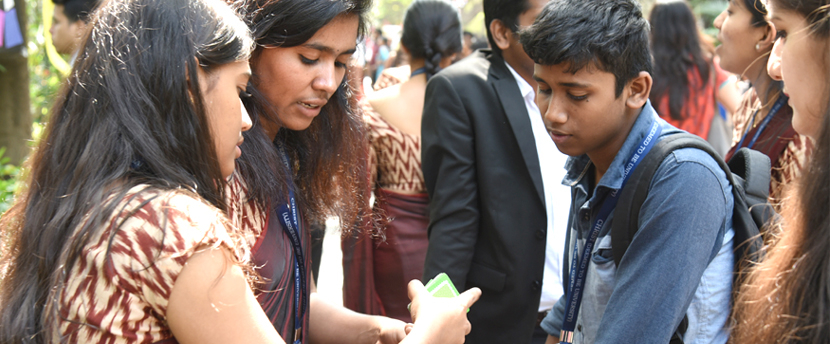The BSc EMS programme at CHRIST (Deemed to be University) aims to develop scientific temper, reasoning skills and analytical ability in students and orients them to contribute to the society as academicians and professionals. The courses are blended with mathematical tools, dynamic programming and economic theory to develop a holistic approach towards solving real world problems. The curriculum provides rigorous theoretical and practical orientation coupled with internships and value-added courses. This programme is curated to suit the demands of ever-evolving job market and nurtures the aspirants to become Economists, Mathematicians and Statisticians having an array career options such as Data Analysts, Public Policy Makers, University Professors, Civil Servants, Actuaries, Defense Personnel, researchers, and BFSI (Banking, Financial Services & Insurance).
Economics
The undergraduate courses in economics are structured to contribute to the student’s liberal education with a multiplicity of combinations. The programmes impart analytical skills and intellectual maturity to comprehend the complexities in the working of the economy. The courses provide a sound theoretical basis in economic theory supplemented by practical applications of theories. The first four semesters are devoted to give a firm background in microeconomics, macroeconomics, development economics & international economics. In the fifth and sixth semesters, the students take two compulsory courses namely Indian Economy since Independence & Financial Economics. They have elective courses in the final year encompassing two options each semester. The elective courses offered by the department are mathematical methods for economics or health economics in the fifth semester and statistical methods for economics or environmental economics in the sixth semester.
Mathematics
The undergraduate courses with Mathematics as one of the dual majors are designed to enable the students to have a strong foundation in various fields of Mathematics. These courses aim at the enhancement of the analytical, logical, reasoning and problem solving skills of students. Further the courses enable the students to develop their intellect and apply their knowledge in solving real life problems. The courses on Differential calculus, Introductory Algebra, Differential Equations, Real Analysis, Numerical Methods and Abstract Algebra given in the first four semesters help the students gain foundational knowledge of Mathematics and appreciate the beauty and power of Mathematics from a theoretical as well as applied perspective. In the final year the students are offered the courses on linear algebra and complex analysis along with two more core courses among an array of courses such as Integral Transforms, Mathematical Modelling, Graph Theory, Calculus of Several Variables, Operations Research, Discrete Mathematics, Number Theory, and Financial Mathematics.
Statistics
The main objective of the statistics courses are to cultivate statistical thinking among students by acquainting them with various statistical methods and their applications in different fields. Courses of the first four semesters give them in-depth knowledge in theoretical aspects of the subject whereas in the last two semesters, the students are exposed to the application of the subject in various fields like industry, agriculture and population studies. Also, the students are trained in using software packages for data analysis.






.png)